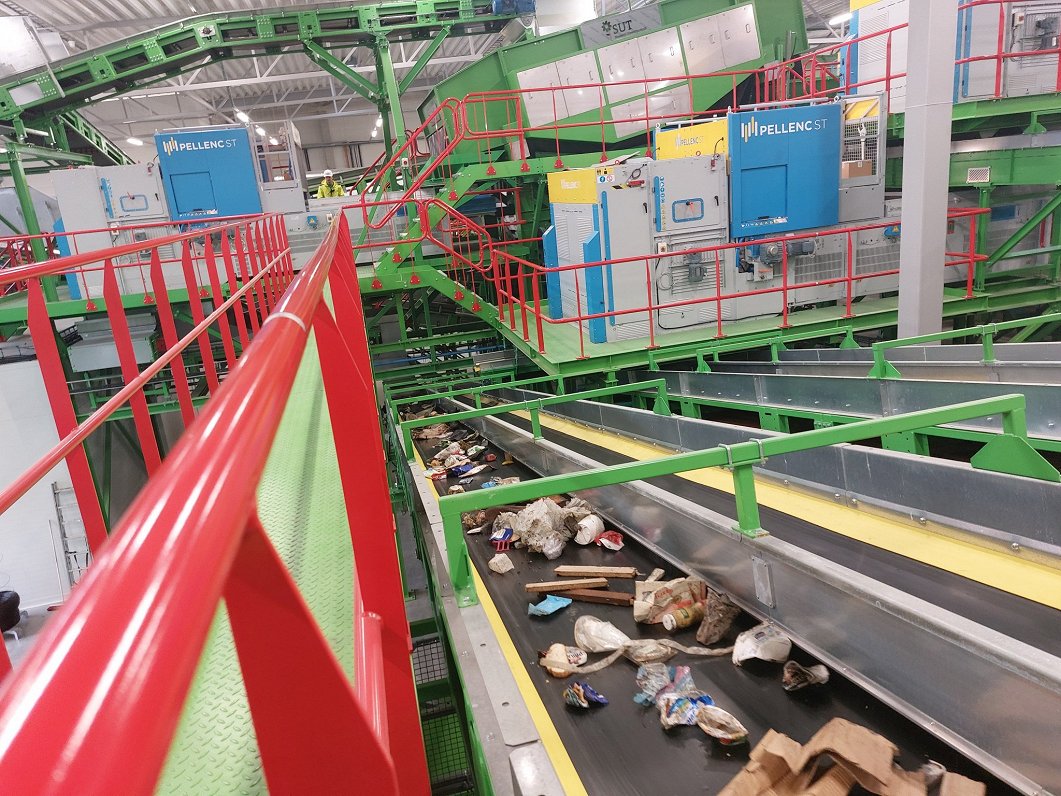Jānis Aizbalts, CEO of waste manager Eco Baltia vide, says the company has invested almost €12 million in the new plant, with a planned sorting capacity of 45,000 tonnes per year. The plant is operating in test mode, with two separate sites receiving unsorted municipal waste from the Rīga region, as well as sorted light packaging waste from both Rīga and its vicinity.
"Here you can see that everything goes through manual sorting first, so the most obvious, biggest pieces that don't fit - hazardous waste, an oil can, batteries or something else - are removed so that there are no further fire risks. The same goes for bulky waste. The next section is all automated, then there's manual inspection again to check the quality," explains Aizbalts.
Currently, the plan is to work five days a week in partial shifts. "With three full shifts seven days a week, the capacity can be doubled," he adds.
The plant will employ around 50 people in total, but most of the sorting is done by a multi-stage optical sorting machine with the ability to change both material types and quality control in the process, as well as to select only the useful material if the stream is too dirty.
The new plant is also linked to the European Commission's requirement that only 10% of waste can be landfilled in 10 years' time. Last year, 200,000 tonnes of waste were disposed of at the Getliņi landfill, and this volume is gradually decreasing, says Ričards Aksels Ozoliņš, a spokesman for Getliņi EKO.
"In 2018, the amount of unsorted municipal waste accepted at Getliņi was 300,000 tonnes, while last year it was 245,000 tonnes. Around 50,000 tonnes less. Considering that the population in Riga and the Baltic region has not decreased, this means that more people are sorting. But as far as meeting the targets is concerned, there is a positive trend at the moment. We see that the amount of unsorted municipal waste in Getliņi is decreasing. The same applies to the amount of waste being disposed of. But we would like to see these dynamics accelerate, so we need to increase recycling capacity," Ozoliņš stresses.
There are still 10 years to meet the European targets. "Setting up different plants helps, but it has to go hand in hand with us changing our daily habits and focusing on sorting," Ozoliņš adds.






























